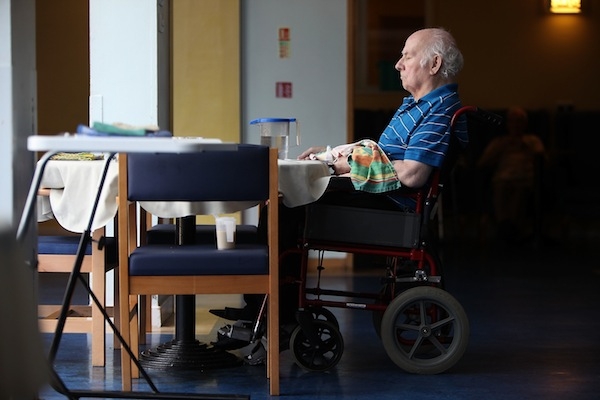During the 2010 general election, two grand politicians came to visit the teaching hospital where a doctor friend of mine worked. He had finished a 13 hour night shift, and, at a loose end, decided to track those two grand politicians’ journey around the hospital. They visited the impressively equipped cardiology wards, stopped by at a premature baby unit (if you can’t have a photo of you kissing a baby, you can at least get one next to an expensive incubator with an even tinier baby inside it), and moved on to the oncology wards to talk to patients battling cancer.
My friend went home feeling rather disconsolate. It wasn’t that there was anything wrong with those wards that the grand politicians visited: it was just that between one well-funded specialty and the next, they missed out an entire floor in the hospital. That floor, unsurprisingly, was geriatrics. The doctor didn’t blame the person in charge of the itinerary for missing it out: it was just that he thought the visitors should see what one of the least loved specialties looked like.
Over Christmas, the newspapers have been packed with headlines about that least-loved specialty, but today, the focus turns elsewhere. For every shocking story about the quality of care on a geriatric ward, you’ll hear another ten about the relatives who arrive at the hospital to see their ailing mother for the first time in eight years. Norman Lamb tells the Telegraph that family networks have broken down to the extent that councils need to set up ‘neighbourly resilience’ to keep elderly people out of care homes for as long as possible. The care minister said:
‘We have lost the extended family because families have become dispersed. We need to rebuild that neighbourly resilience that helps people stay independent. If someone is living on their own never seeing anyone, that is a dismal existence, and it often ends up with it all collapsing and them going into a care home.’
Interestingly, the Lib Dem minister declined to describe this as the ‘Big Society’, saying instead that ‘this is not the Big Society, it’s the decent society’.
There does need to be a shift in the way society treats older people (this interview on LBC underlined that more than anything this Christmas), but in the absence of changing the way families work, Lamb is making some very sensible moves by helping councils set up services to help older people retain their independence. Moving from hospital to a care home takes time (and figures suggest the delays are getting worse), and in that time a ‘bed blocker’ is susceptible to infections such as hospital-acquired pneumonia. And the care home itself costs money, and will continue to do so even once the government has capped care costs, as it is expected to do in the forthcoming mid-term review. So any moves to help someone stay in their own home and live an independent and stimulating life there are very sensible indeed. It’s just a shame that society is forgetting its elderly to the extent that government has to step in.







Comments